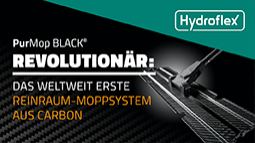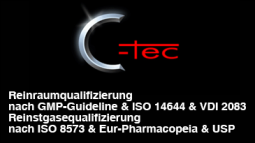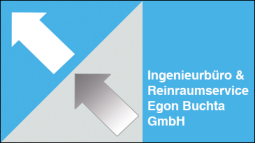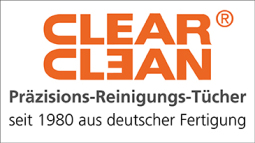Innovative ZLD Hybrid System for maximum cost efficiency
HAGER + ELSÄSSER presents new concept for the production totally free of waste water
The model for production totally free of waste water - zero liquid discharge (ZLD) - is increasingly being applied in a wide variety of industries. Instead of discharging water which is as clean as possible, the aim in future is for production processes to discharge no water at all. Together with its affiliate Membran Filtrations Technik (MFT), Hager + Elsässer (H+E) has now developed a new ZLD process which uses a series of innovative filtration and separation technologies, including three reverse osmosis stages to reduce the subsequent evaporation of residual waste products to a minimum.
Around 400 ZLD plants are already in operation around the world. The underlying aims and motives differ from region to region. For example, in areas of low rainfall such as the South of France the prime need is independence from the local water supply, whereas in Germany ever more stringent environmental stipulations have been imposed, such as on salt loads in waste water. In countries such as India, or regions like South America there are frequently no effluent treatment plants so that ZLD take on these functions. On the other hand, companies in European countries use ZLD processes for post-processing in the actual effluent treatment system.
Previously, the considerable investment and operating costs have discouraged the use of the technology. In particular, the aspect of high energy requirements played a role here.
Hager + Elsässer, one of the world's leading solution suppliers in the field of holistic water management, has now teamed up with its affiliated company MFT (Membran-Filtrations-Technik) to develop a new ZLD process that significantly reduces energy requirements by sharply minimising the evaporation stage: ZLD.eco.
High-pressure membrane stage with the circular disc module
At the heart of the system is a new high-pressure reverse osmosis stage. This involves a pre-treatment process, which can either be chemically-physically or biological depending on the user, and an ultra-filtration stage to filter out residual organic material followed by multi-stage membrane technology designed to concentrate non-organic waste material more densely. After the first two reverse osmosis stages entailing pressures of up to 80 bar, the residual concentrate contains around 20% of the total waste water volume. This is then subjected to a further reverse osmosis stage. In this third reverse osmosis stage, pressures of up 200 bar are reached. This stage uses a special module developed by MFT known as the circular disc module (CD module). Unlike other modules using a meander flow pattern, the water takes a circular path through the CD module, thereby reducing pressure losses.
The high pressure warms the concentrate to approx. 70°C. This is then vaporised in the subsequent low pressure stage, which acts with the membrane technology to form a 'hybrid system', giving the concentrate a manageable consistency. The thermal energy is fed back into the system and used to increase energy efficiency. This significantly reduces the energy requirements of the entire system. The volume of waste products still present after the maximum pre-concentration produced by the high-pressure membrane technology is significantly lower than with conventional processes. As a result, the evaporation stage with ZLD.eco can be considerably shorter.
Compared with conventional systems without pre-concentration, ZLD.eco requires about 20% less energy. Also, since the evaporation system is smaller, less cooling energy is needed for the condensation process. These savings can amount to as much as 80%. Further savings can be achieved thanks to the modular construction of the system. The savings in terms of staffing are around 20%, while commissioning costs are also lower by 20%. And last but not least, the reduced consumption of chemicals consumption is an additional advantage. Thanks to savings on different levels, investments in ZLD.eco have a very short payback periods.
H+E GmbH
70565 Stuttgart
Germany










